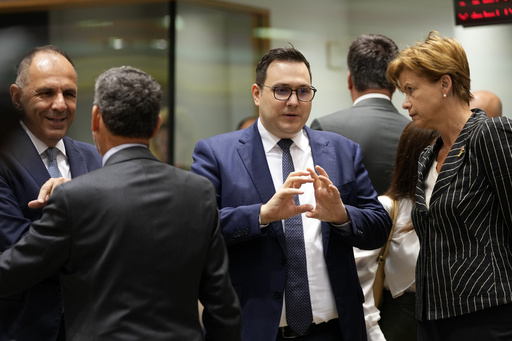At a meeting held in Brussels on Thursday, Ireland’s foreign minister expressed strong concerns regarding the ongoing violence in Gaza and the West Bank, calling for the European Union to reassess its relationship with Israel. The minister accused Israel of targeting civilians alongside Hamas militants during the military campaign that began nearly 11 months ago, resulting in a high number of civilian casualties. According to local health officials, the offensive in Gaza has led to the death of over 40,000 people, displacement of 90% of the population, and extensive destruction of cities. On the other hand, Hamas has also suffered significant losses in terms of fighters and infrastructure.
The European Union has been urged to take action in response to a legal opinion from the International Court of Justice, which declared Israel’s occupation of Gaza and the West Bank as unlawful. This has prompted calls for sanctions on certain Israeli government ministers accused of inciting racial hatred and violating international humanitarian law. The EU, a key aid provider to the Palestinians, faces challenges in leveraging its influence over Israel due to internal divisions among member states.
EU foreign policy chief Josep Borrell, supported by Ireland, proposed considering sanctions against specific members of Prime Minister Benjamin Netanyahu’s cabinet for their remarks on the conflict in Gaza. Borrell criticized Israeli officials for making inflammatory statements that contradict international law and incite further violence. Although he did not mention specific ministers, Borrell previously condemned Israel’s Finance Minister Bezalel Smotrich for suggesting punitive measures against Gaza’s population until hostages were released.
Amidst varying stances among EU member states, with countries like Austria, Germany, and Hungary supporting Israel, solidarity with the Palestinians is emphasized by nations like Ireland and Spain. The potential imposition of sanctions would require unanimous agreement among EU members, as pointed out by German Foreign Minister Annalena Baerbock. The ministers emphasized the need to carefully assess allegations and uphold international humanitarian law without being constrained by taboos. The discussions highlight the EU’s internal challenges in maintaining a unified approach toward the Israeli-Palestinian conflict.


